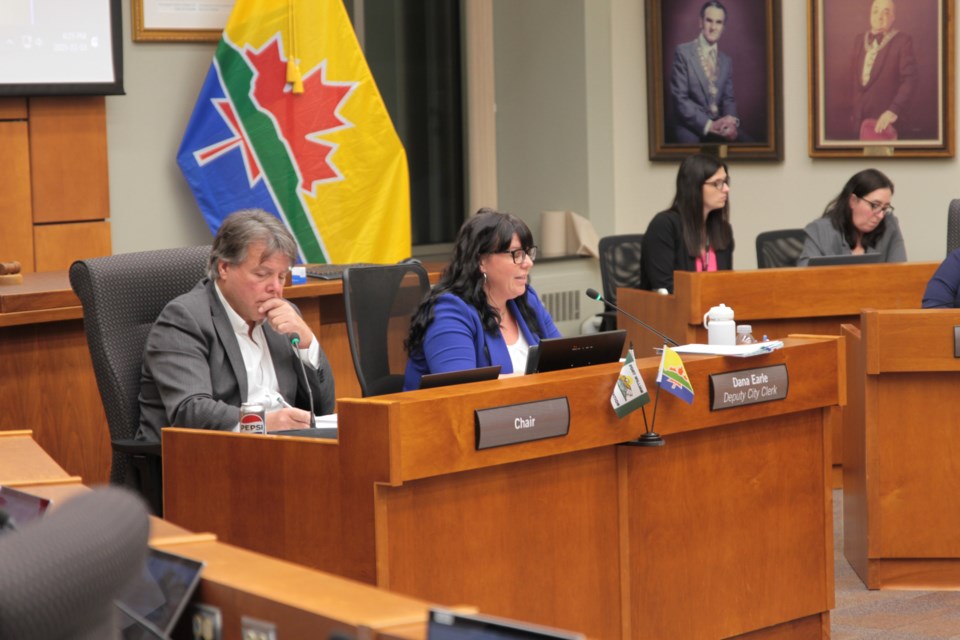THUNDER BAY — City council voted unanimously to approve a $448.8 million operating budget for this year at its Monday night meeting.
A final budget deliberation meeting had been scheduled for Wednesday, but has now been cancelled.
A little less than half of the total budget, $219 million, will be raised through this year’s taxes. That’s up $10.4 million over last year, a 4.5 per cent increase. Not including a $1.7 million contribution to the city's new growth assessment fund, the increase to the operating budget comes to 3.7 per cent.
Council made very few changes to the budget presented by administration. The only major change was an increase in the Thunder Bay Police Services (TBPS) operating budget.
Council unanimously approved an increase of $193,000 in personnel services, in order to create 5 new positions, raising the total TBPS operating budget net cost from $59,193,100 to $59,386,100.
The additional police funding will be reallocated from the city's solid waste and recycling reserve fund and won't impact this year's tax levy.
Coun. Andrew Foulds said he was frustrated that year after year the TBPS has asked for funding increases from the municipality.
“We're going to be a city that simply pays for police and I don't think that's OK. So, my question is, how do you justify (a 5.1 per cent budget increase)?” asked Foulds.
Chief Darcy Fleury said that 91 per cent of their budget is for staffing, including a part-time position being turned into a full-time position for a specialist in work and retention.
Fleury said WSIB claims have been putting a strain on police services with officers working overtime to fill in the gaps.
“The overtime costs really that we see the most is more towards some of the WSIB pieces where we have people off and then we have to fill those shifts. That's probably the main draw to our overtime,” Fleury said.
He noted that the work and retention specialist will work with WSIB to “understand some of the conditions that our people find themselves in and find ways to bring them back into the office in some form or one way or another.”
Fleury also pointed out that the services peer-to-peer program will be starting next week as another “in-house” solution to aid in employees’ mental health.
The service is also looking hiring a mental health professional like a psychologist or psychiatrist to “triage some of the cases” and start conversations with employees to mitigate WSIB claims.
The solid waste and recycling reserve fund is intended to pay for the city's provincially mandated green bin organic program, which was originally supposed to be implemented this year but has been delayed until 2026.
The program has the potential to divert huge amounts of material away from the city landfill, with food and other organics making up roughly half of what’s currently thrown in the trash, according to city staff.
This year's allocation to that fund was reduced to $863,000 from just over $1 million, drawn from a $3 million provincial contribution from the Ontario Municipal Partnership Fund (OMPF).
The remainder of the OMPF funding is being use to offset the additional costs of the agencies, boards, and committees whose budgets came in over their mandated 3.8 per cent increases, said city manager John Collin.
For example, the TBPS’s final budget came in 5.1 per cent above its 2024 budget. The OMPF was leveraged to ensure that the “municipality did not have to bear (the cost) directly,” said Collin.
“We successfully managed to address or offset those increases, and we still had money remaining from the OMPF increase,” said Collin.
Coun. Mark Bentz asked if there were contingencies put in place to pay for the green bin program in the event OMPF funding isn't available again next year?
Collin said council would have to trust administration to make up the funds in the 2026 budget.
“There's no indication that our OMPF money will be diminished next year. In fact, there's every indication that it will increase again,” said Collin.
The budget still need to be ratified, which is scheduled for Feb. 10.
